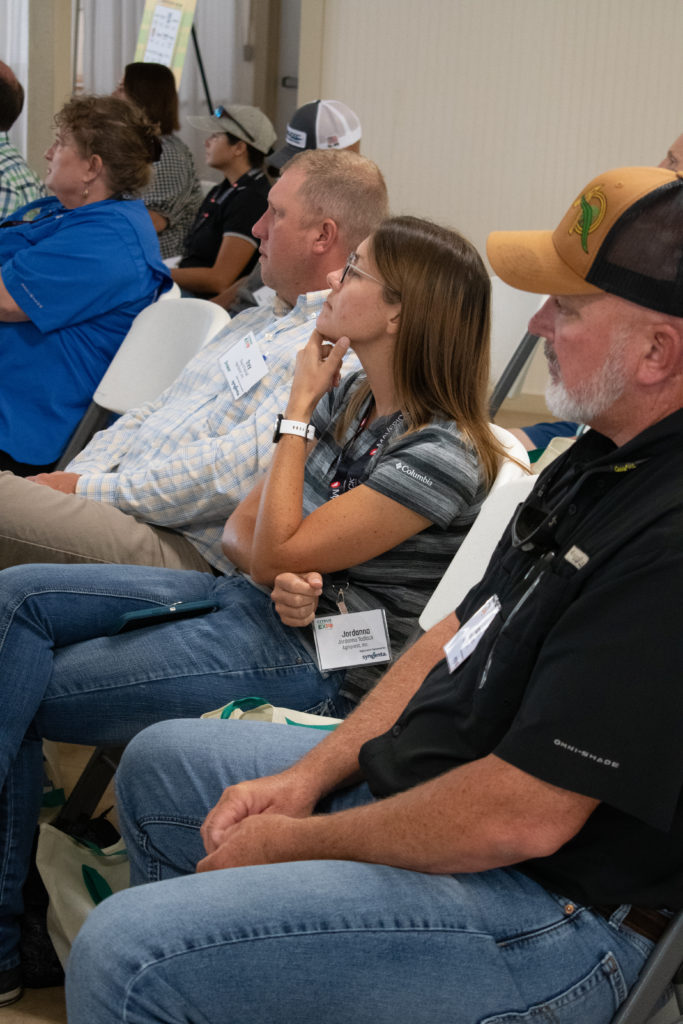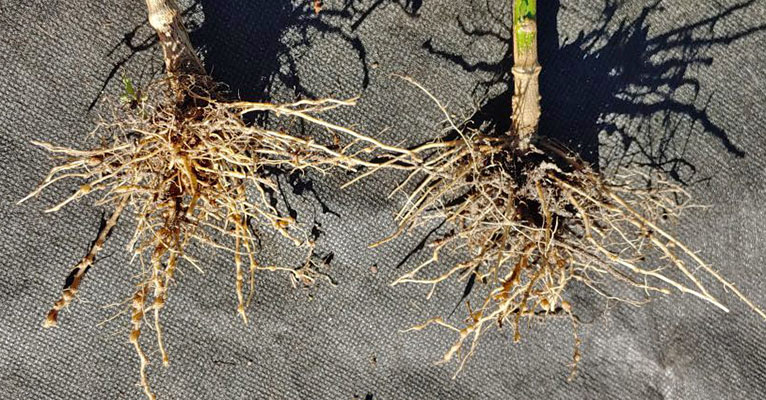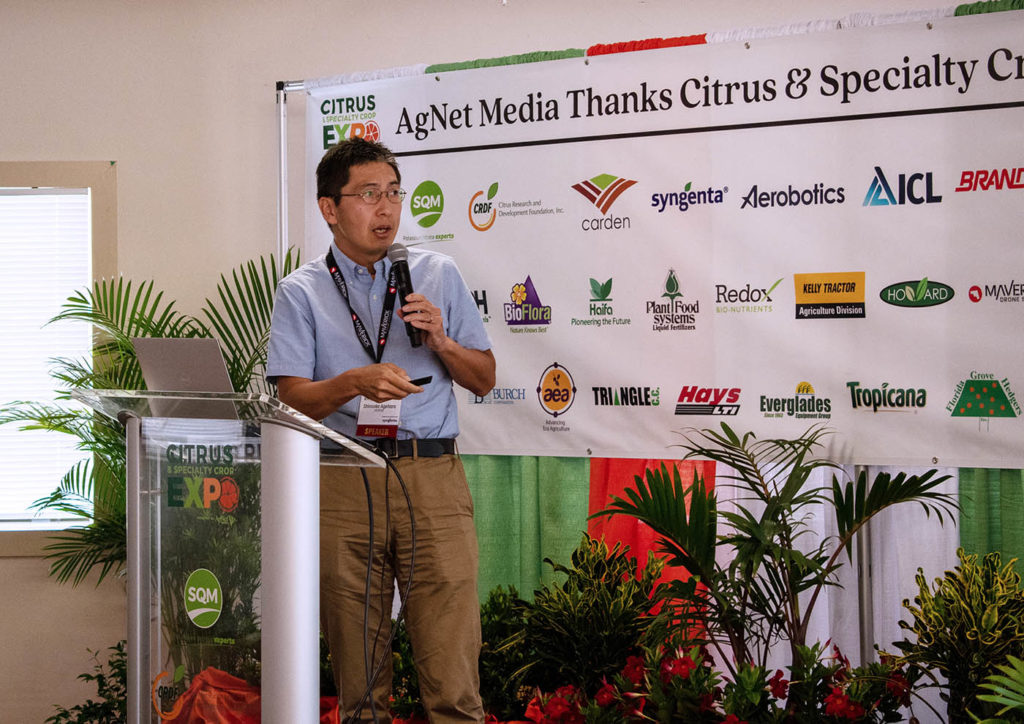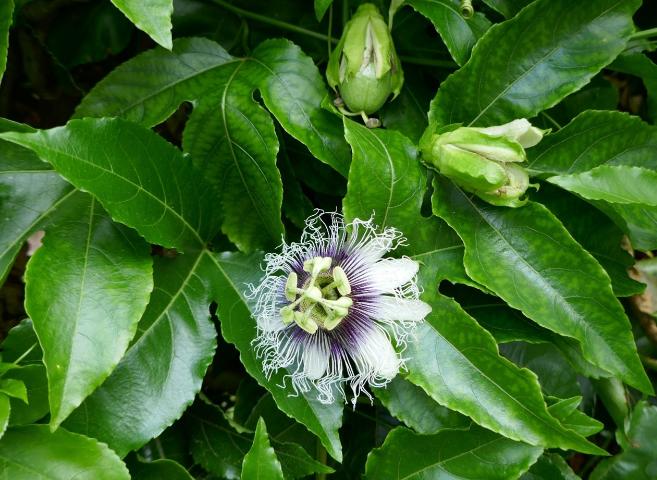By Clint Thompson
A highlight of the annual Citrus & Specialty Crop Expo is the seminar program that focuses on the vegetable and specialty crop industry in Florida. This year’s sessions covered a range of topics, including pest management, alternative crops that growers can take advantage of, and various other research updates from University of Florida Institute of Food and Agricultural Sciences (UF/IFAS) specialists.

PEST PROBLEMS
Scientists discussed various insect, virus and weed pests that are impacting crops.
Johan Desaeger, assistant professor of entomology and nematology at the UF/IFAS Gulf Coast Research and Education Center (GCREC), discussed his findings from studies on the guava root-knot nematode.
Desaeger said guava root-knot nematodes were found “in North Carolina on sweet potatoes on tubers that were shipped to other states. It was a big concern for these sweet potato growers in North Carolina. Since we started looking at it two years ago in Florida, we found quite a bit of it. It seems to be a lot more common than I suspected.”
Nematodes are microscopic worm-like pests that have a wide host range. Guava root-knot nematode is considered more aggressive and will reproduce faster than other nematode species. It can affect all vegetables.
While guava root-knot nematode has been a focus the past couple of years, whiteflies have been on growers’ radar for some time.

Photo by Zane Grabau, UF/IFAS
Jawwad Qureshi, UF/IFAS entomologist at the Southwest Florida Research and Education Center (SWFREC), discussed the importance of scouting for whiteflies and applying early chemical treatments.
“Whiteflies are an important pest. We see them in both seasons, during the spring and fall. It’s important to start treating early in the season,” Qureshi advised. “It’s critical to monitor and start early in the season and try to get some of those materials and treatments into the plants.”
Whiteflies are a threat to cucurbit crops mostly because of the viruses they vector.
Pam Roberts, professor of plant pathology and state Extension specialist for vegetable pathology at the UF/IFAS SWFREC, elaborated on some of those viruses in discussing watermelon production. Specifically, she addressed cucurbit leaf crumple virus and cucurbit yellow stunting disorder virus. Both are transmitted by whiteflies.
Weed control is essential for growers trying to send all available water, nutrients and sunlight to their plants. The presence of weeds means competition for those essential inputs. Ramdas Kanissery, UF/IFAS weed scientist and assistant professor at the SWFREC, discussed the significance of ensuring timely herbicide applications.
“The timing of the application is the key. In the row middles, we need to apply early. If pre-emergent herbicides are applied too late, the weed germination has already happened and then it’s a waste of money. We have to apply it when the soil is really clean,” Kanissery said. “When the weeds come up, they’re going to produce more seeds. It’s a ticking time bomb.”

ALTERNATIVE CROPS
Growers looking to diversify were able to learn about potential alternative crops at the Citrus & Specialty Crop Expo. Florida’s environmental conditions are conducive for the development of different commodities not available for production in other parts of the country. But there are risks with producing such crops.
Jonathan Crane, associate center director and tropical fruit specialist at the UF/IFAS Tropical Research and Education Center, highlighted the challenges with producing passion fruit, lychee and avocado. One of those challenges that can have the biggest impact on the crops is cold weather.

Photo by Mark Bailey, UF/IFAS
Crane said that mature passion fruit vines will suffer once temperatures get to 28 or 30 degrees. “They start getting damaged and can be killed,” he warned. “Of course, flooding is also a problem. If it’s not well-drained soil, that’s a problem.”
“When you look at lychee, it can take more cold, but now we have this (erinose) mite issue,” added Crane. “You have to be careful not to introduce that mite into your grove. With avocado, again it’s the freezing temperatures.”
Shinsuke Agehara, UF/IFAS assistant professor of horticulture at the GCREC, believes artichoke, a crop he’s researched for five years, has a future in the Sunshine State. The main challenge will be to expand the harvest window, which is currently from January to April. Expanding the harvest period would benefit growers and buyers.
“I know that we can produce artichoke. We have to come up with an optimum application protocol, and then also we have to modify crop management practices,” Agehara said.









